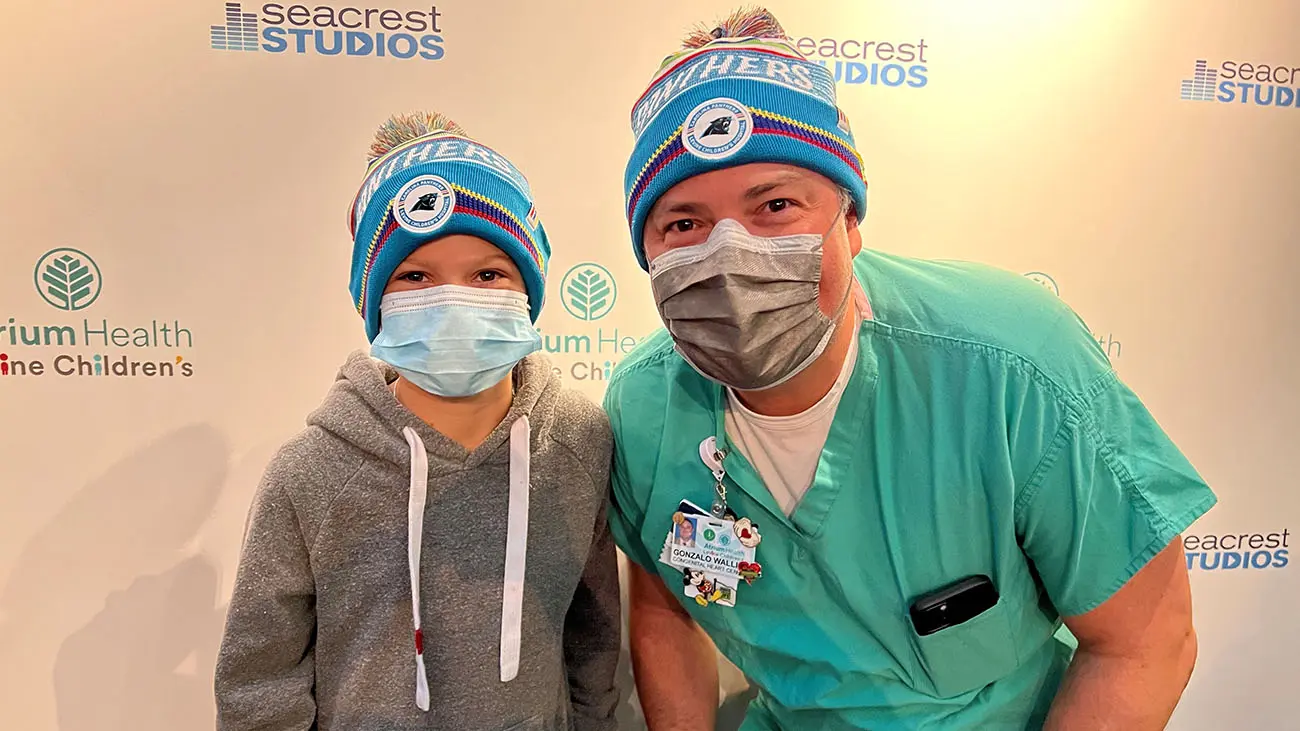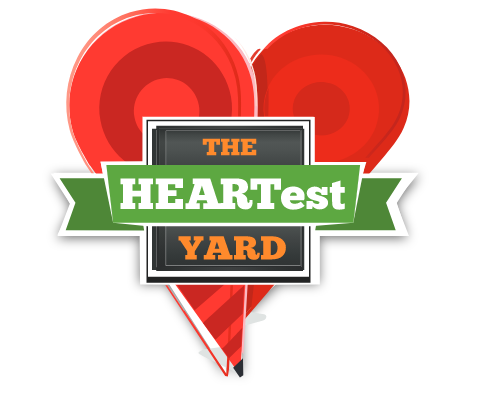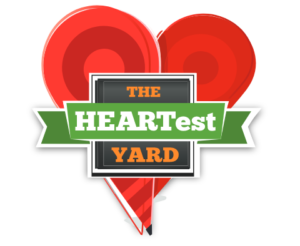Behind the mask: Meet the Charlotte doctor giving kids new hearts

Alivia McAteeBy Alivia McAtee | February 17, 2022
Views: 2,092
Atrium Health Logo
This content was produced in partnership with Atrium Health.
Dr. Gonzalo Wallis is a pediatric cardiologist at Atrium Health Levine Children’s HEARTest Yard Congenital Heart Center.
2021 was a record-breaking year for Dr. Wallis and his team: They completed more heart transplants than any other year, giving 19 kids a new chance at life.
“In 2014, we were doing one to two transplants a year; it was more of a rescue operation. The program has grown tremendously since then with the support of Levine Children’s.”
Why did you choose this specialty?
The background: I’m actually from Venezuela, so growing up there were no transplants or options to help kids in severe heart failure. My wife is American, so we decided to move to the US to train and I was lucky enough to work with a guy who was like a pioneer of transplants.
Transplants let you turn the tables and give somebody a new shot at life.
How are pediatric transplants different from adult transplants?
In adults, transplants are usually related to heart attacks.
But children that need transplants typically have congenital heart disease – meaning they’re born with heart defects – or their heart has been injured with infections or chemotherapy.
In other words, pediatric transplants can be more complex, physically and emotionally, and need a teamwork approach to care for them.
You need a village and a really robust system with a lot of resources to do it right.
What’s behind the growth of the transplant program at Levine Children’s?
It’s been deliberate. We’ve invested in the program, acquiring talent, resources and building relationships with other hospitals in the region so patients can stay here instead of having to go to other cities like Atlanta, Boston or even further.
It’s great for the families to stay local instead of relocating for years at a time.
How do you bring the best care to Charlotte patients?
Over the past 8 years we have partnered and collaborated with the biggest transplant centers in the world through the Pediatric Heart Transplant Society. Through collaboration we make sure we standardize the care and provide the most up to date care.
The results: We all share this wealth of knowledge and then we make sure the patients benefit from that.
We also work with an amazing organ procurement organization, LifeShare, that discusses donation with families and procures our organs .
What is life like for a child post-transplant?
They live an ordinary life. They play sports; they go to school; they do normal stuff.
Contrary to popular belief, they don’t live in a bubble.
The other cool part of being a transplant doctor is that you don’t just deal with cardiology. You build lifelong relationships with your patients, and they come to you for everything, even an ingrown toenail.
What do you do in your free time?
I’m a bit of a workaholic, but my family loves exploring Charlotte. My son plays sports, so I spend a lot of weekends at soccer and basketball games.
We love eating out. Peppervine, the Crunkleton and Dot Dot Dot are some of our favorites.
What’s the one thing you want our readers to know?
There’s a big need for organ donation. Sadly, we don’t have enough organs to be able to transplant everyone.
Especially in pediatrics, it’s important that parents know the facts about organ donation.
Key number: One organ donor can save up to eight lives. Adults can register online.




